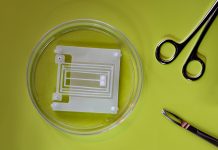In a groundbreaking development, an AI-powered tool is set to revolutionise military engineering capabilities by swiftly identifying equipment faults
At Royal Naval Air Station Yeovilton, a collaborative project involving 1710 Naval Air Squadron, DE&S Digital AI Team, and Royal Navy Engineers unveils the innovative ‘Motherlode’ defence software tool, now powered by artificial intelligence.
Along with transforming military engineering capabilities, the technology is also set to provide rapid solutions, ensuring readiness for deployment and cost savings.
Cutting-edge AI software modernises military engineering capabilities
This advanced AI software can analyse aircraft maintenance data at unprecedented speeds, reducing complex problem-solving tasks to seconds. Detecting engineering issues at their earliest stages allows personnel to preemptively order spare parts, preventing costly problems down the line.
Minister for Defence Procurement James Cartlidge, applauds AI
Minister James Cartlidge visited RNAS Yeovilton to witness the capabilities of this new technology firsthand.
It will be deployed across various platforms, including the Wildcat Maritime Attack helicopters. Cartlidge emphasised the importance of investing in AI to modernise the Armed Forces and enhance their precision, efficiency, and safety.
Empowering smarter decision-making through AI
The AI-powered software can analyse historical data, tailoring its predictions to environmental and aircraft-specific conditions, resulting in more accurate equipment failure forecasts. This empowers more intelligent decision-making, from back-office management to frontline operations.
Commander Nicholas Almond envisions a bright AI future
Commander Nicholas Almond, the Commanding Officer of 1710 Naval Air Squadron, envisions the potential of AI in enhancing data exploitation capabilities and maximising aircraft availability for frontline operations. Smarter logistical and engineering decisions will ensure the optimisation of crucial defence equipment while remaining cost-effective.
Expanding AI implementation
The full capabilities of ‘Motherlode’ will be rolled out across all Royal Navy helicopters by the end of 2023, with plans to explore its use in other defence equipment, such as land-based vehicles like the Foxhound.
The UK’s commitment to AI innovation is evident through initiatives like the Frontier AI Taskforce, which, with an initial £100 million in funding, ensures leadership in this field.
The UK’s robust investment in AI safety research and its flourishing AI industry continue to drive technological advancements and economic growth.
Incorporating AI into military engineering capabilities not only bolsters defence technology but also streamlines operations, enhances safety, and strengthens the UK’s position in the global AI landscape.
Editor's Recommended Articles
-
Must Read >> 34% UK public sector fear robots will replace them
-
Must Read >> #HackathonForGood attracts tech talent to The Hague














